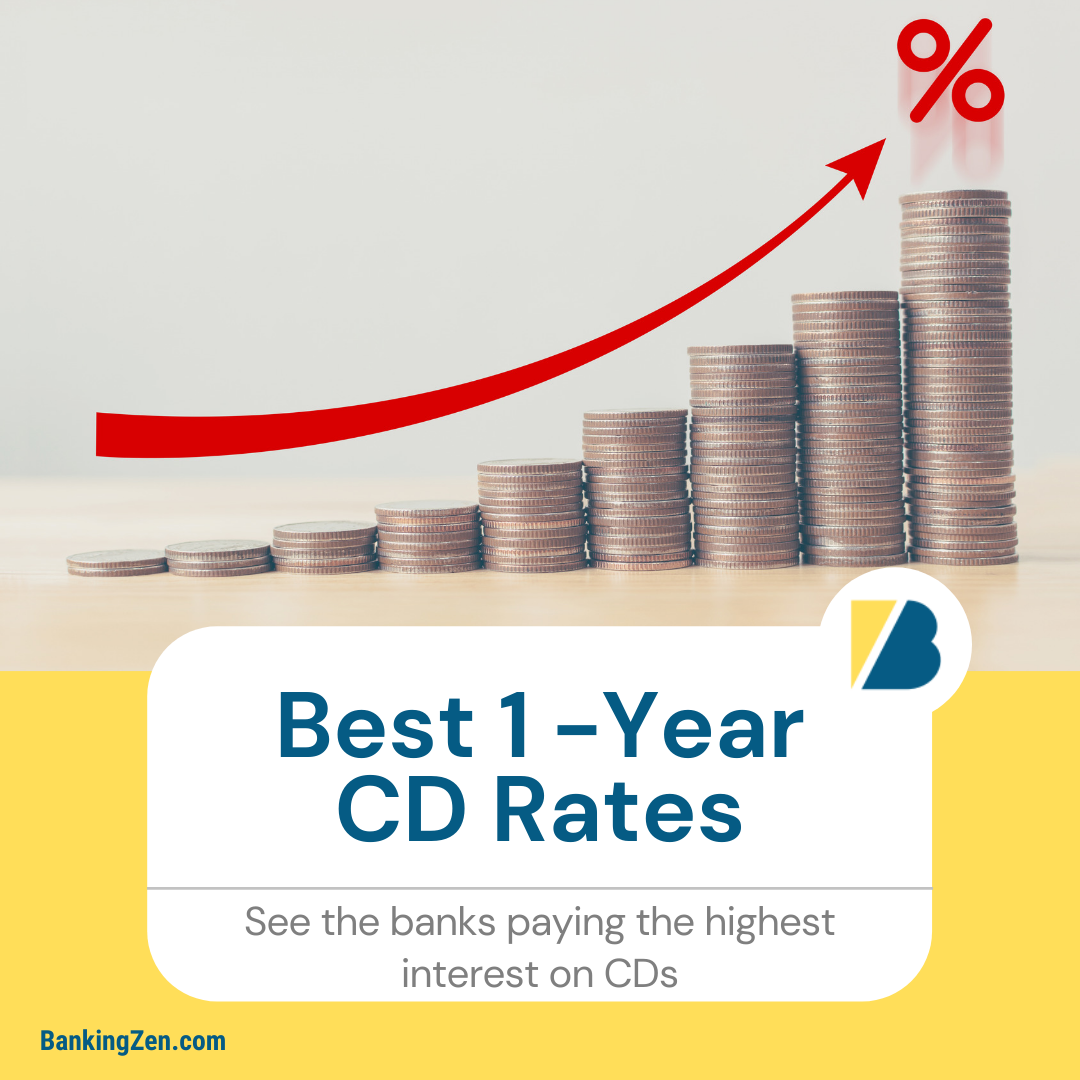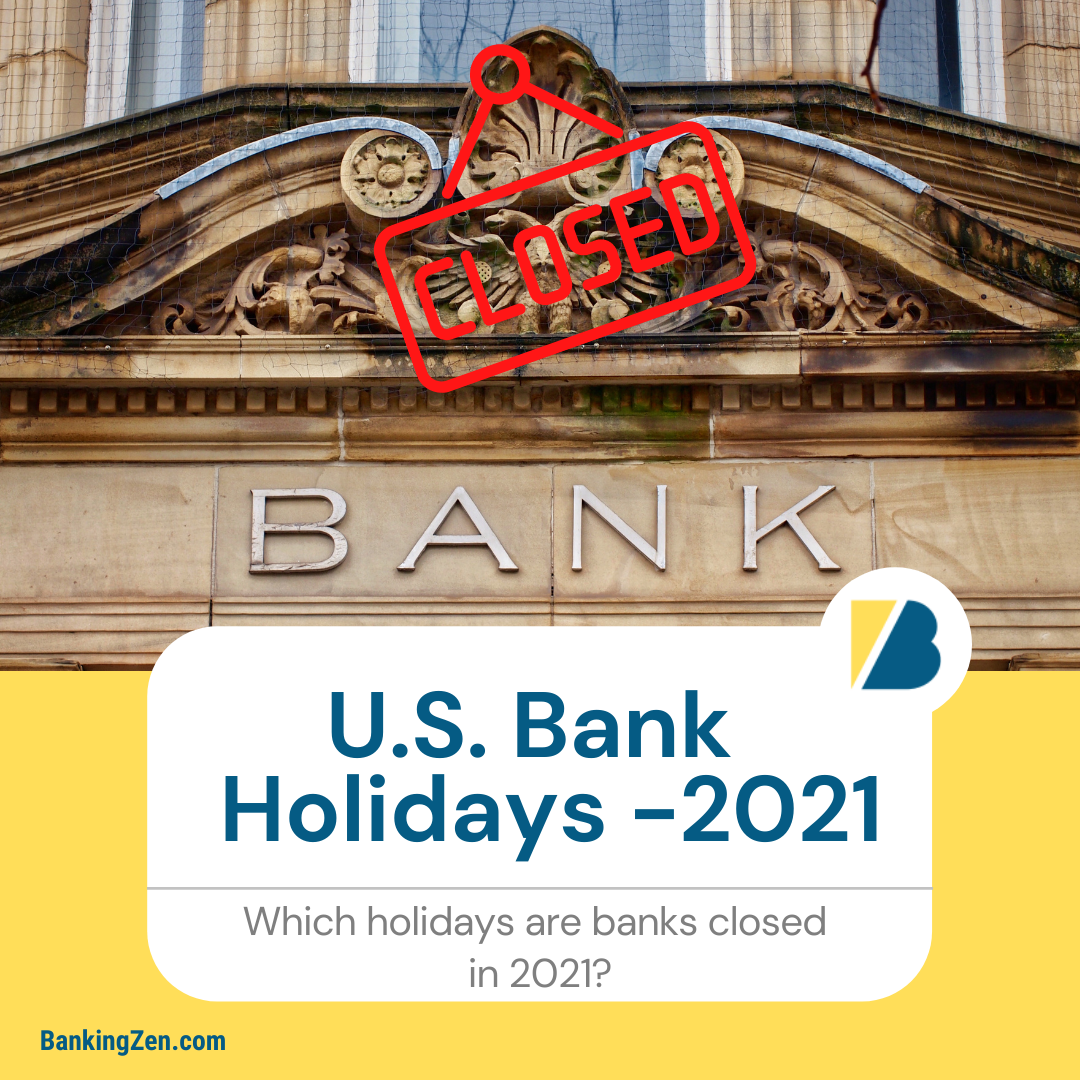If you have some money to save but do not want your money locked away for a long period of time, a 1 year CD may be a great option. A 1-year CD could be a great option for you if: You won’t need access to your money for one year and would like to earn a higher interest rate than some savings or money market accounts. In this post, we will provide you a list of the Best 1-Year CD Rates available today for 2021.
As of February 2021, the national average rate for a 1-year CD in the US is 0.15%, according to the FDIC.
However, we have done the research and created a list of banks and credit unions with the best CD rates in the country.
The rates you will see on our list are significantly higher than the national average.
First, we will explain what CDs are about and how they work.
Next, we will explain the reasons why you may want to consider putting your money in a CD.
Also, we will discuss whether a 1-year CD is worth it.
Finally, we will review the Best 1-year CD Rates and also provide you with alternatives to the 1-year CDs.

This post will cover:
- What is a Certificate of Deposit?
- Why Put Your Money in a CD?
- Is a 1-Year CD worth it?
- Best 1-Year CD Rates – 2021
- Alternatives to a 1-Year CD
- Best 1-Year CD Rates Summary
What is a Certificate of Deposit?
A Certificate of deposit (CD) is a type of deposit account that often pays a higher interest rate than a standard savings account in exchange for restricting access to your funds during the CD term.
CD terms often vary, depending on the financial institution but are between three months and five years. As long as you keep the money in CD during the entire term, you will earn the APY you were promised.
However, if you should take your money out before maturity or term, and you will most likely incur a penalty.
In addition, if you take your money out early, you also might have to forfeit a portion of the interest you earned, depending on the bank’s policy.
Why Put Your Money in a CD?
If you want to grow your money but keep it safe from the turbulence of the stock market, a certificate of deposit (CD) may be a good option.
Furthermore, many CDs with terms of at least 12 months offer rates that are higher than the best savings accounts.
For example, if you put $5,000 in a CD that earns 2.6% APY for a one-year term, your balance would increase by more than $130.
You should consider a CD if you are certain you won’t need to access your cash for several months or years, depending on the goal you have for that money.
Smaller, local banks or credit unions often offer better rates than the big national institutions.
Also, online-only banks can offer great CD rates because of their lower expenses.
Finally, putting your money in a CD is risk-free in the sense that you can put up to $250,000 in CDs and will never lose that money as long as your account is with an FDIC bank insured NCUA insured credit union.
Is a 1-Year CD worth it?
In general, CDs are good for people who want to earn a better interest rate on their money (versus a regular savings account) but do not want their money locked away for a longer period.
The national average APY for 1 year CDs is typically higher than that for savings accounts.
This type of CD is best if you are saving for a goal that is coming up within a year – like an anniversary vacation or buying a house.
However, if say you are saving for a down payment on a house five years from now, it’s better to look into a longer-term CD, which typically provides a higher rate.
Best 1-Year CD Rates – 2021
Here are the banks and credit unions with the best 1-Year CD rates today.
You can also find below in the summary section links to each bank’s CD page for your convenience.
| Bank/Institution | APY | Minimum To Open |
| State Department Federal Credit Union | 0.80% | $500 |
| Lafayette Federal Credit Union | 0.80% | $500 |
| CommunityWide Federal Credit Union | 0.80% | $1,000 |
| Bank of Baroda | 0.80% | $1,000 |
| Latino Community Credit Union | 0.75% | $500 |
| MAC Federal Credit Union | 0.75% | $1,000 |
| Paramount Bank | 0.75% | $1,000 |
| Air Force Federal Credit Union | 0.75% | $1,000 |
| Connexus Credit Union | 0.71% | $5,000 |
| Live Oak Bank | 0.65% | $2,500 |
| Quontic Bank | 0.65% | $500 |
| Greenwood Credit Union | 0.60% | $1,000 |
| BrioDirect | 0.60% | $500 |
| Ally Bank | 0.60% | No minimum deposit |
| Comenity Direct | 0.60% | $1,500 |
| Synchrony Bank | 0.60% | $2,000 |
| First Internet Bank of Indiana | 0.60% | $1,000 |
| Limelight Bank | 0.60% | $1,000 |
| Amerant Bank | 0.60% | $10,000 |
| Marcus by Goldman Sachs | 0.55% | $500 |
| First National Bank of America | 0.55% | $1,000 |
| TAB Bank | 0.50% | $1,000 |
| Alliant Credit Union | 0.50% | $1,000 |
| PenFed | 0.50% | $1,000 |
| Sallie Mae Bank | 0.50% | $2,500 |
| Discover Bank | 0.50% | $2,500 |
| Salem Five Direct | 0.50% | $10,000 |
| Radius Bank | 0.50% | $500 |
Alternatives to a 1-Year CD
If you do not want to lock your money in a 1-Year CD but still want to get a better yield on your money than a regular savings account or leaving your money in a checking account, here are some alternatives to consider:
High Yield Savings Account
If you’re not sure about locking your money away for a year in a CD, you can also always choose a high-yield savings account.
Unlike CDs, which can tie up your money for several months or years, high yield money market accounts (MMAs) and savings accounts allow you to freely withdraw your money at any time.
Furthermore, some also pay annual percentage yields (APYs) that are comparable to a one year CD.
Many banks and credit unions offer high-yield savings accounts with higher rates than short-term CD lengths.
Short-Term Bond Funds
Short-term bond mutual funds are another great CD alternative.
Furthermore, they come with low expense fees and no withdrawal penalty, therefore, you’ll have access to your money as soon as you need it.
Bonds held within this fund have an average maturity of fewer than two years.
For example, the T. Rowe Price Short Term Bond Fund (NYSE: PRWBX) has a minimum investment requirement of $2,500 but offers an attractive yield of around 2% (minus the expense fee of 0.46%).
I-Bonds
Issued and backed by the U.S. government, I bonds are designed to keep pace with inflation.
Therefore the interest rate on I bonds is adjusted every six months as inflation fluctuates.
Furthermore, every dollar you invest in an I-Bond is also tax-deferred (like an IRA contribution), meaning you’re only taxed on earned interest after you redeem it.
In recent years, the I-Bond has paid an APY between 2.5% and 3.5%.
However, you must hold the I-Bond for at least one year, without exception.
Also, if you redeem an I-Bond within five years, you must forfeit your last three months of interest.
I-Bonds can be purchased (without commission) in $25 increments at TreasuryDirect.gov for up to $10,000 per person.
No-penalty CDs
As you may already know, when you withdraw your money from a CD before the term expires, you generally pay a penalty of at least several months’ of interest earned.
Some banks and financial institutions allow you to withdraw your money before the term expires, with no penalty.
However, the trade-off for this service is that the rates on these no-penalty CDs may be a little lower than the regular CDs.
The following three banks offer no-penalty CDs:
- Marcus by Goldman Sachs Bank
- CIT Bank
- Ally Bank
- CitiBank
Best 1-Year CD Rates Summary
State Department Federal Credit Union
0.80% APY, $500 Minimum Deposit
Lafayette Federal Credit Union
0.80% APY, $500 Minimum Deposit
CommunityWide Federal Credit Union
0.80% APY, $1,000 Minimum Deposit
Bank of Baroda
0.80% APY, $1,000 Minimum Deposit
Latino Community Credit Union
0.75% APY, $500 Minimum Deposit
MAC Federal Credit Union
0.75% APY, $1,000 Minimum Deposit
Paramount Bank
0.75% APY, $1,000 Minimum Deposit
Air Force Federal Credit Union
0.75% APY, $1,000 Minimum Deposit
Connexus Credit Union
0.71% APY, $5,000 Minimum Deposit
Live Oak Bank
0.65% APY, $2,500 Minimum Deposit
Quontic Bank
0.65% APY, $500 Minimum Deposit
Greenwood Credit Union
0.60% APY, $1,000 Minimum Deposit
BrioDirect
0.60% APY, $500 Minimum Deposit
Ally Bank
0.60% APY, No minimum deposit
Comenity Direct
0.60% APY, $1,500 Minimum Deposit
Synchrony Bank
0.60% APY, $2,000 Minimum Deposit
First Internet Bank of Indiana
0.60% APY, $1,000 Minimum Deposit
Limelight Bank
0.60% APY, $1,000 Minimum Deposit
Amerant Bank
0.60% APY, $10,000 Minimum Deposit
Marcus by Goldman Sachs
0.55% APY, $500 Minimum Deposit
First National Bank of America
0.55% APY, $1,000 Minimum Deposit
TAB Bank
0.50% APY, $1,000 Minimum Deposit
Alliant Credit Union
0.50% APY, $1,000 Minimum Deposit
PenFed
0.50% APY, $1,000 Minimum Deposit
Sallie Mae Bank
0.50% APY, $2,500 Minimum Deposit
Discover Bank
0.50% APY , $2,500 Minimum Deposit
Salem Five Direct
0.50%, $10,000 Minimum Deposit
Radius Bank
0.50%, $500 Minimum Deposit
Questions?
We hope this post on Best 1-Year CD Rates was helpful.
If you have further questions about CDs, Banking, or personal finance in general, please let us know in the comments section below.
Be sure to check out our other popular articles, including:
The Best 6-Month CD Rates
Citibank CD Rates Today
Walmart MoneyCard App for Android and iPhone
Direct Express Mobile App for Andriod and iPhone
Best CD Rates in Maryland
Navy Federal Credit Union Guide
Navy Federal Credit Union CD Rates



